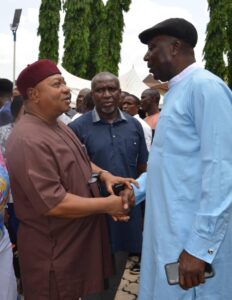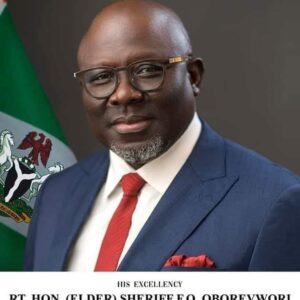The Pervasiveness of Witchcraft and Ritualism in Nigeria (2)
Okoli Leonard Maduabuchi Caesar
In the last publication, I examined the excessive appropriation of mystified occurrences to witchcraft activities in Nigeria. I further examined the fact that many Nigerians adopt the witchcraft explanatory model to give coherence to life experiences and events and the accusation leveled against illiteracy and lack of exposure as being a major cause of this prevalence of witchcraft consciousness in Nigeria; a point I already challenged and countered.
So, it is the writer’s opinion that there are fundamental causes or reasons for this. Either it involves the very nature and thinking process of the average Nigerian, or it is something enshrined in the socio-cultural Nigerian setting. I set about therefore to argue that it involves the fundamental perception and thinking process of the average African in general and the Nigerian in specific.
What is the thinking process of the African? A question of such requires an examination into the nature of “how” the African approaches reality. It entails an answer to the question: How do we examine reality and our experiences of it? The average African and more specifically, the Nigerian has his/her unique way of approaching reality. To understand the African/Nigerian thinking process, we must first understand the African ontology or how we perceive and assess reality.
According to some African thinkers like M. K. Asante, A. K. Jimoh and others, the African mind is characterized by some categories. These categories influence the way the African perceives and experiences reality and consequently, his knowledge claims. The African mind is characterized by: the unity of the world, practicality of wholism, prevalence of poly-consciousness, idea of inclusiveness, and the value of interpersonal relationships. As far as our discussion is concerned, the “unity of the world” is most relevant and that would be our focus.
The average Nigerian does not believes in the separate existence of two realms: the physical and the spiritual! Even if he/she believes it theoretically, he/she does not apply it practice, or at least, not always. Instead, we continually intertwine the two realms in our analysis of events and experiences. This is responsible for the continuous appropriation of physical effects to spiritual causes because we hardly separate the two worlds in our consciousness. Hence, it makes some sense to us to conclude that there is a connection between the owl that cries at night and the child that dies in the morning. The continuous association of the two worlds affects the African/Nigerian model of assessing reality.
Consequently, the Nigerian develops an all encompassing, unitary and wholistic model of assessing reality, connected with the self. In fact, there is little or no dichotomy between the knowing self and the known object. The average Nigerian does not dissociate him/herself from that which he/she wishes to know and understand. Hence, when we ask these questions: Is it possible for us to think about and analyze each of our experiences individually without references to other similar experiences? Is it possible for us to have a phenomenological approach to life? Can we in anyway treat our experiences just as they appear? We may answer these questions in the affirmative, but the reverse is mostly the case than its affirmation. What this shows therefore is that we scarcely peel off different layers of our experiences in order to understand them as they are. Instead, we are used to explaining things in a continuum.
K. C. Anyanwu, an African scholar corroborates this view that the African method of knowing is rooted in the unitary mind set of Africans. For him, Africans see all reality as sharing the same animating vital force. In the African understanding, “knowledge comes from the cooperation of all human faculties and experiences. The average African sees, feels, imagines, thinks and accepts all at the same time. Only through this method does he claim to have knowledge of others and of the world around him. Hence, the method through which the African arrives at trustworthy knowledge of reality is intuitive and personal experience.
This feature of the Nigerian mind has also taken cover under religion to the extent that witchcraft belief and ritualism are rift amongst a vast percentage of religious adherents. This is so because religion provides this necessary connection between the physical world and the spiritual world. Thus, many run to it for shelter and consequently get excessively attached to it whether traditional or Christianity or Islam. According to John S. Mbiti,
Because traditional religions permeate all the departments of life, there is no formal distinction between the sacred and the secular, between the religious and non-religious, between the spiritual and the material areas of life…the African people do not know how to exist without religion.
Therefore, the writer argues that the thinking process and the way the average Nigerian approaches reality is a major factor in the prevalence of witchcraft consciousness and ritualism.



